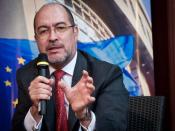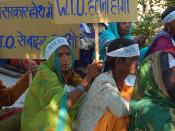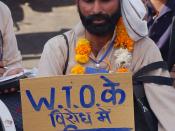The World Trade Organisation
The World Trade Organisation or WTO has, since 1995, been the leading international organisation responsible for developing and monitoring free trade; while also policing trade violations (World Trade Organisation, 2003).
The WTO developed out of GATT, the General Agreement on Tariffs and Trade. GATT came into being after the 1944 Bretton Woods Conference. It was advanced as a temporary structure for trade negotiations by USA president Harry Truman, after Congress withdrew form the International Trade Organisation or ITO talks. GATT became the primary organisation responsible for the liberalization of trade in 1948. (World Trade Organisation, 2003)
GATT was based on two basic principles that still govern the WTO today; they were reciprocity and non-discrimination (World Trade Organisation, 2003). All concessions would there be reciprocal, meaning all would be agreed or nothing would be agreed, this would discourage unilateral trade barriers because all nations would lower their barriers together.
Non-discrimination on the other hand meant that all nations would have top treat imports form all other nations the same. Imports form one could not be given preference over imports form another. This is known as most favoured nation status or MFN, designed to eliminate bilateral trade wars (World Trade Organisation, 2003).
In the eighth round of the GATT talks held at Punta del Este in Uruguay, GATT finally came to an end. It was replaced by the WTO. The WTO was now responsible for the implementation of GATT?s agreements and had to act as a forum for net trade talks. (World Trade Organisation, 2003) The WTO also had to act on and resolve trade disputes, this is made easier by the fact that WTO decisions are theoretically taken by the member states themselves ? All is agreed or nothing is agreed.
Why is the WTO important...


